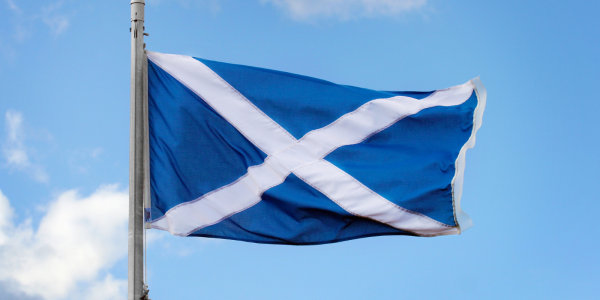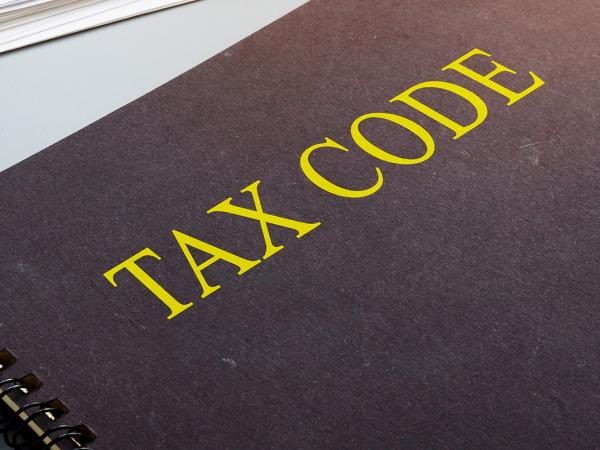Scottish income tax for Scottish taxpayers in 2024/25
From 6 April 2024, there are six rates and bands of Scottish income tax that apply to the non-savings and non-dividend income of Scottish taxpayers. We set out what this means for Scottish taxpayers.

Content on this page:
Scottish income tax rates and bands for 2024/25
The Scottish government is introducing a new band of Scottish income tax for 2024/25 onwards, called the advanced rate. This means there will be six rates and bands of Scottish income tax from 6 April 2024.
The rates and bands of Scottish income tax that apply from 6 April 2024 to 5 April 2025 are:
| Scottish income tax rates 2024/25 | Scottish income tax bands 2024/25 (£) |
| Scottish starter rate – 19% | 12,571 – 14,876 (2,306) |
| Scottish basic rate – 20% | 14,877 – 26,561 (11,685) |
| Scottish intermediate rate – 21% | 26,562 – 43,662 (17,101) |
| Scottish higher rate – 42% | 43,663 – 75,000 (31,338) |
| Scottish advanced rate – 45% | 75,001 – 125,140 |
| Scottish top rate – 48% | 125,141 and above |
Note that the bands in the table assume that you get the UK-wide personal allowance for 2024/25 of £12,570. The personal allowance is reduced if your adjusted net income is over £100,000, as explained on GOV.UK.
The effect of the 19% Scottish starter rate band is that Scottish taxpayers who have non-savings and non-dividend income of less than £28,867 in 2024/25 will pay less income tax than taxpayers in the rest of the UK earning the same level of income. The saving for Scottish taxpayers is relatively small, at a maximum of around £23 for the year. Scottish taxpayers who have non-savings and non-dividend income of more than £28,867 in 2024/25 will pay more income tax than taxpayers in the rest of the UK earning the same level of income.
Scottish taxpayers
The general rule is that you are a Scottish taxpayer if your home is in Scotland for more than half of the tax year.
If you are a Scottish taxpayer, you pay Scottish income tax on your non-savings and non-dividend income. You may also have to pay income tax according to the UK rates and bands if you have savings and / or dividend income.
There is more information about who is a Scottish taxpayer on our page Scottish taxpayers.
Non-savings and non-dividend income
If you are a Scottish taxpayer, you pay Scottish income tax on your non-savings and non-dividend income. This means that you pay income tax according to the Scottish rates and bands of income tax.
Non-savings and non-dividend income includes:
- Employment income
- Profits from self-employment
- Pension income (including the state pension)
- Profits from rental property
If you have savings income, such as interest, or dividend income, you pay income tax according to the UK rates and bands on that income.
This means that if you are a Scottish taxpayer, you may have to pay income tax according to both the Scottish rates and bands and the UK rates and bands.
There is more information about this and an example of how to calculate your income tax if you have to pay income tax according to both the Scottish and UK rates and bands on our page Scottish income tax: more detail.
Paying Scottish income tax
HM Revenue & Customs (HMRC) collect and administer Scottish income tax.
HMRC collect Scottish income tax from employees and pensioners under the Pay As You Earn (PAYE) system. Scottish taxpayers who pay Scottish income tax under the PAYE system should have a tax code that starts with the letter ‘S’. For example, if you are a Scottish taxpayer and receive the full personal allowance then your PAYE code would be S1257L. You can check your PAYE code on your payslips or form P60 that you receive from your employer or pension provider, or via your personal tax account.
Throughout the UK, certain taxpayers have to complete a self assessment tax return. For example, if you receive rental income from letting out a property, or if you are self-employed, you may have to complete an annual self assessment tax return. In this case, HMRC collect your Scottish income tax through the self assessment system.
If you have any questions about income tax, including Scottish income tax, you should contact HMRC.
Importance of address
It is important to tell HMRC your correct and up-to-date address because:
- HMRC use your address and postcode as the main way of working out if they think you are a Scottish taxpayer, and
- HMRC send correspondence, including repayments of tax, to the address they have on file for you
You can let HMRC know your up-to-date address and any changes to your address using their online service.
Pension contributions tax relief
Scottish taxpayers who make pension contributions under net pay arrangements have their pension contributions deducted from their pay before income tax is applied. This means that they receive tax relief automatically at their marginal rate of tax.
For relief at source pension arrangements, pension providers continue to claim tax relief at 20% for all Scottish taxpayers.
HMRC will not recover the difference between the Scottish starter and Scottish basic rate, where a Scottish taxpayer receives 20% relief but has only paid tax at the starter rate of 19%.
Scottish taxpayers start to pay tax at a rate higher than 20% once their non-savings and non-dividend income exceeds £26,561. This is much sooner than taxpayers in the rest of the UK. This means that Scottish taxpayers who are liable to income tax at the Scottish intermediate rate of 21% are entitled to claim the additional 1% tax relief due on some or all of their contributions. If they already complete a tax return, they can do this through self assessment. Otherwise, they need to contact HMRC.
Gift aid tax relief
Currently, charities do not have to identify whether or not a donor is a Scottish taxpayer – they simply claim tax relief at 20% from HMRC on gift aid donations. Scottish taxpayers who pay tax at a rate higher than 20% are able to claim extra tax relief. As with pension contributions, because Scottish taxpayers start to pay tax at a rate higher than 20% much sooner than taxpayers in the rest of the UK, they are able to claim additional tax relief sooner. If they already complete a tax return, they can claim the extra tax relief through self assessment. Otherwise, they need to contact HMRC.
As always with gift aid, the taxpayer must have paid enough tax during the tax year to cover the amount of tax relief claimed by the charity.
More information
You can find more information about Scottish income tax on our pages Scottish income tax, Scottish taxpayers and Scottish income tax: more detail.
You should contact HMRC if you have queries about Scottish taxpayer status, Scottish income tax and obtaining tax relief on your pension contributions or gift aid donations.



